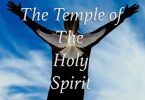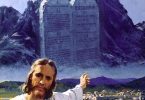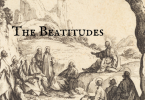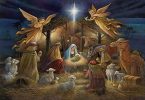3rd Sunday of advent (Year B)
Scripture: Is. 61:1-2, 10-11; Lk. 1:46-50, 53-54; 1 Thess. 5:16-24; Jn. 1:6-8, 19-28
This Sunday is called Rejoice Sunday. It has been named because of the entrance antiphon which is taken from the letter of St. Paul to the Philippians. St. Paul says, “Rejoice in the Lord always; again I say, rejoice. Indeed, the Lord is near.” (Phil. 4:4-5) The entire liturgy is framed such a way that the church prepares its faithful the great feast of God becoming man. The opening prayer of the mass makes the vivid petition to God as the church awaits the feast of the Lord’s nativity. It pleads to attain the joys of salvation with solemn worship and glad rejoicing.
The readings are carefully chosen to add meaning to the liturgy. The first reading is from the book of third Isaiah (chs 56-66). The prophet identifies himself as the servant of the Lord. He announces the great joy to the people of Israel. The good news was God has announced a year of favour. He proclaims freedom and healing to the captives and prisoners. The Israelites knew what it meant to be the year of the Lord, the jubilee year. (cfr. Lev. 25: 10) This brings confidence in the lives of Israelites. The prophet perceives the renewal of their relationship with God. He also perceives that the spirit of the Lord is at work within them silently. He uses the imagery of the earth which produces fresh things and a garden that springs up from the seeds silently. The prophet is rejoicing in the Lord with the hope of salvation.
The response is taken from the Gospel of Luke. It is a great song of the magnificat. The song is expressed by Mother Mary when she goes out to meet her cousin Elizabeth. The response highlights the theme of joy. Mary filled with joy expresses the goodness of God. “He looks on his servant, he works marvels, he shows mercy, he fills the starving and he protects his servants.” She praises God for all that God is to her and to the entire humanity.
There is yet another person who counsels us to rejoice in the Lord always. In the second reading, St. Paul who was quite fond of the Thessalonians. He wrote his first letter to instructs them in their spiritual life. He told them to follow three things. They were asked to rejoice at all times, pray constantly and for all things give thanks to God. He told them not to suppress the thrust for the Lord. He exhorts to keep the spirit, soul and body, safe and blameless for the coming of the Lord.
The Gospel text has no reference to the theme of joy. It is taken from the Gospel of John. Once again there is John the Baptist where we are told that he is a witness. He clarifies that he is not the Christ, he is not Elijah for whom the people are waiting, he is not the prophet. He calls himself a voice that cries in the wilderness. However, he introduces someone who is coming after him and he is not fit to undo his sandal-strap. The Gospel gives us the reason for joy. Someone is coming who will fulfil the prophecy of the first reading. Luke in his Gospel referred to the prophecy of Isaiah (Lk. 4:18-19). Jesus reads the text from the Prophet Isaiah and claims that the prophecy is fulfilled. John proclaimed the coming of Jesus. It was a piece of good news for the entire human race.
Today’s liturgy places before us a very important message. We need to prepare ourselves to meet the lord not with the fear or trembling but with joyful hearts. If we are fully prepared like the Prophet Isaiah, Mother Mary, St. Paul and St. John the Baptist then we have nothing to worry. They were filled with joy to meet the Lord in their lives. Our Holy Father, Pope Francis lives with the same conviction.
Pope Francis understood these special characteristics of a follower of Christ. We are called to be joyful people. His writings are mostly referred to joy. His first encyclical letter is the joy of the Gospel (Evangelii Gaudium). He has written on the family life i.e. “the joy of love” (Amoris Laetitia). He has another apostolic exhortation, “rejoice and be glad” (Gaudete et Exsultate). Pope Francis has extensively spoken on the joy. He says joy is the air Christians breath. Joy comes from the holy spirit and the holy spirit dwells in our lives.
Pope Francis, our Holy Father of faith leads us by his example. It is the same spirit that prompts us today that we need to meet the Lord with joyful hearts. May this Eucharist help us to be joyful people who are waiting to meet the Lord.






